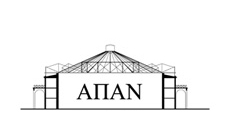Herodotus, Historiae
[Bibliography]
Herodotus / Herodote, Historiae / Histories
First edition
Herodotus, the great Greek historian and traveler, was born about 484 BC at Halicarnassus (modern Bodrum) in ancient Caria, Asia Minor, when it was subject to the Persians. He was a child during the second phase of the Persian Wars and the Greek victories which lead to the “Golden Age”.
He traveled widely in most of the sea front of Asia Minor, the islands of the Aegean Sea and the Greek mainland, the Middle East and Egypt (as far as Aswan); it is not verified if he has visited the north of the Black Sea and Libya but it is very possible. He lived for some time in Athens and was a member of Pericles’ circle. In 443 he has joint the first group of Athenian colonists who founded the city of Thurii (in South Italy / Magna Graecia); he died there about 430 BC.
Instead of other prologue, he opens his Histories with only one phrase: ‘This is the display of the inquiry of Herodotus of Halicarnassus, so that things done by man not be forgotten in time, and that great and marvelous deeds, some displayed by the Hellenes [Greeks], some by the barbarians [Persians], not lose their glory, including among others what was the cause of their waging war on each other’.
The Histories were divided by Alexandrian grammarians in nine ‘books’ each one bearing the name of a Muse.
His famous history of warfare between the Greeks and the Persians has an epic dignity which enhances his delightful style. It includes the rise of the Persian power and an account of the Persian Empire; the history of the archaic Kingdom of Lydia conquered by Cyrus the Great; the history of the Greek colonies in Asia Minor during the first centuries after their foundation; the description of Egypt fills one book; because Darius I attacked Scythia, the geography of the Black Sea steppe, the description of the civilization of the Scythians as well as a great deal of information concerning the Greek city-states of that remote land are also given; even in the later books on the Persian expedition against Greece there are digressions. All is most entertaining and produces a grand unity. After personal inquiry and study of hearsay and other evidence, Herodotus gives us a not un-critical estimate of the best that he could find.
By all means we are grateful to the ‘father of historiography’ (and historical geography, and ethnology). We owe him the Wars of the Achaemenid Empire during the 6th c. and the first two decades of the 5th c. until 478 BC, when the narration suddenly stops; we owe him the description of great battles between Persians and Greeks in land and sea, such as the Marathon and Salamis; we owe him the marvelous voyage to the Eastern World during the Archaic period.
He was ‘the prose correlative of the bard, a narrator of the deeds of real men, and a describer of foreign places’ (according to Murray).
See attached here the nine books of the Histories (the original ancient Greek text)
